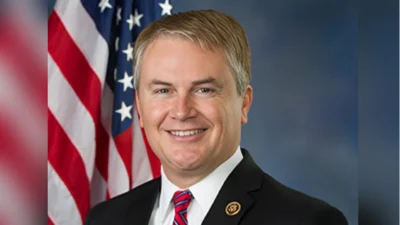"We convene at a critical juncture for our economy and for millions of American families. What is at stake is the continuation of our economic recovery. In December we saw the strongest job growth in months - more than 200,000 private sector jobs were created, and 3.2 million private sector jobs have been created over the last 22 months. Despite this progress, over 13 million Americans are still looking for work.
"We need to ensure that 160 million workers continue to benefit from the payroll tax cut and that nearly 5 million unemployed workers don’t lose their unemployment insurance benefits while they look for work - both of which support economic growth. And we must ensure that more than 46 million seniors continue to have access to their choice of doctors.
"In addition, American families and businesses cannot afford the kind of last minute uncertainty they were forced to confront last month. I would hope we could agree on that. We need to arrive at a bipartisan outcome in a timely fashion and without crisis.
"In other words, this conference committee must choose positive results over continued brinkmanship - too much is at stake. We arrive at this juncture following a year that saw far too much brinksmanship.
"Federal unemployment insurance benefits for nearly 5 million workers are at stake. Long term unemployment remains close to its highest level on record - in large part because we still have roughly 6 million fewer jobs today than when the recession started in December of 2007.
"Every day is an emergency for those without a job, and it is still too difficult to find one. Last week, the Chairman of President George W. Bush’s Council of Economic Advisors wrote in the Wall Street Journal: 'Because the number of unemployed is high and the number of hires is low, the statistical likelihood that an unemployed worker will find a job is just over one-third as high as it was in 2007.'
"Congress has historically provided unemployment benefits on an emergency basis. If you look at the record over the last 20 years, Congress has not required an offset to maintain a Federal UI program, with the exception of the current stopgap bill we are now operating under.
"The payroll tax cut for 160 million workers is at stake. If we don’t pass a full extension, a family struggling through the economic recovery making $60,000 will see its taxes go up by $1,000 beginning March 1.
"Allowing that to happen would not only hurt those families, it would hurt growth. As economists have estimated, failure to continue the payroll tax cut for 2012 and federal unemployment insurance would reduce economic growth by a full percentage point this year and destroy one million jobs.
"The payroll tax cut essentially assists low- and middle-income workers, whose wages have stalled over the last decades. The story for the very highest earners has been very different. The top 1 percent of earners gained 58 percent of income growth from 1976 to 2007, while a whole third of all income growth went to the top 0.1 percent of earners.
"Fairness calls on us to ask those who have done the very best in the last years and decades to contribute a little more toward fiscal responsibility. A fair way to do that is through a surtax on income over a million dollars.
"Finally, 46 million seniors’ access to care is at stake. We all have a great interest in preventing the pending cut to Medicare physician payments. Enacting a permanent fix would put this issue behind us and help ensure continued access to care for seniors and individuals with disabilities long into the future. We can and should fix this problem without penalizing the very patients we seek to help.
"So Mr. Chairman, I look forward to working with you and the other conferees toward a timely and effective resolution on all of these issues. The economic recovery and the livelihoods of millions of American families are at stake."







